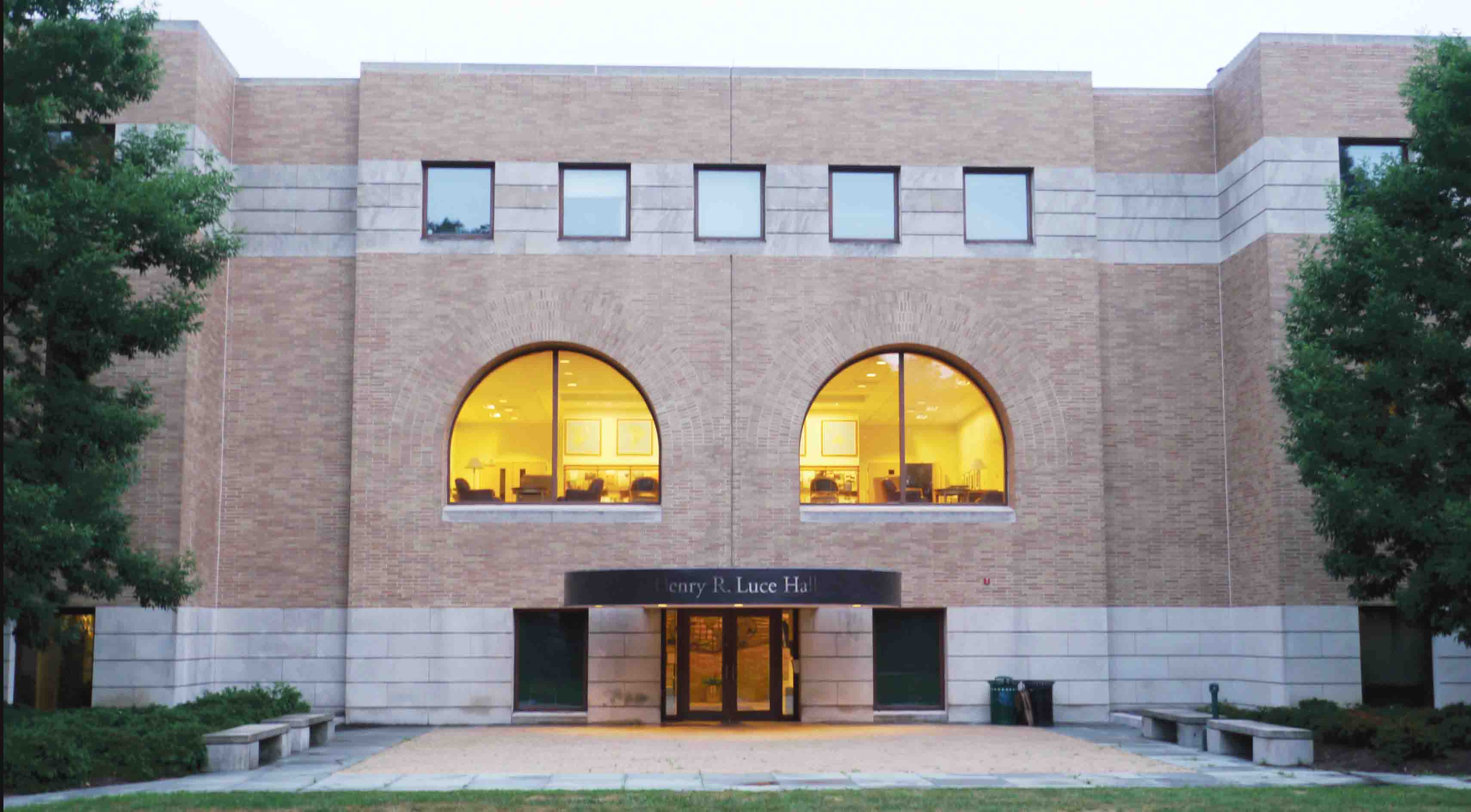
WikimediaCommons
Multiple Yale departments on Friday hosted the Data Science Workshop on Computational Social Science, the first in a series of annual conferences that will focus on different fields within data science.
Eight speakers — three from Yale and five from other institutions — presented at the event, discussing topics in computational social science, a field within data science that uses mathematics and programming to research social science. More than 100 people attended the daylong conference held at Luce Hall.
“One of the most exciting things about this conference was to see people working with rich, complex human data in different fields with different modeling techniques,” said Brian Scassellati, a computer science, cognitive science and mechanical engineering professor and one of the speakers at the event. “It’s a great opportunity for us to see if techniques in very different domains might help us with issues in our own research.”
While Friday’s event was centered around computational social science, future workshops may focus on digital humanities, ethics in data science, financial data science or biomedical data science, said Dragomir Radev, a Yale computer science professor and one of the event organizers.
Radev said the event was meaningful because data science has become an area of increasing interest in industry, government and academia. The expansion and renaming of the statistics department to the Department of Statistics and Data Science demonstrate the higher emphasis on data science at Yale in particular, he noted.
At the workshop, linguistics professor Claire Bowern shared her work in computational phylogenetics — the study of the history of languages and the work of representing those histories using trees. She discussed computational methods she used in studying the Pama-Nyungan language family, a large group of about 250 Australian languages.
According to Bowern, this work is applicable to Australia and also speaks to larger questions about how languages change over time, how languages and speakers spread and how climate change affects population movements.
“I was interested in showing some of the ways in which linguists use data science methods to answer interesting questions about the past,” Bowern said.
Scassellati was another Yale presenter at the conference, and he shared his research on the use of robots in therapeutic treatments for individuals with autism spectrum disorder. His studies have broken ground into understanding why robots are able to elicit social behaviors from children and teenagers on the autism spectrum while similar interactions with adults and peers are less effective.
The third speaker from Yale was Vineet Kumar, a marketing professor at the School of Management. Discussing his investigations of crowdsourcing for financial information, Kumar explained the impact of different strategies — phone, computer or in-person sourcing — on the quality of crowdsourcing and potential ways to improve these methods of obtaining information.
The five external speakers hailed from Johns Hopkins University, Brown University, University of Massachusetts Amherst, Durham University and Microsoft Research. Bowern said the broad range of speakers at the event served to highlight the ways in which data science methods apply across campuses and academia.
“We’re seeing a number of different areas — including linguistics — become increasingly quantitative and technical in the computational sense,” she said. “At the same time that we’re seeing an increase in distrust of scientific methods and knowledge in the public sphere, we’re also seeing a huge growth in work labeled as ‘data science.’”
The organizing committee included professors from the departments of Statistics and Data Science, Political Science and Computer Science, according to Radev. Statistics and Data Science operations manager Joann DelVecchio as well as members of the Language, Information and Learning at Yale Lab, which is run by Radev, were also involved with the organization and logistics of the event.
The newly created Department of Statistics and Data Science at Yale has an early estimate of about 20 graduating seniors in the first year of the major, according to Daniel Spielman ’92, co-director of undergraduate studies for the department and a computer science and mathematics professor.
Amy Xiong | amy.xiong@yale.edu
Correction, Oct. 25: Due to an editing error, a previous version of this article incorrectly stated linguistics professor Claire Bowern last name. The article has been updated to reflect the correct spelling.







